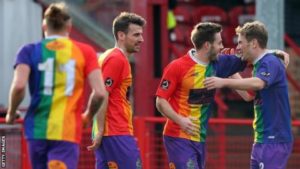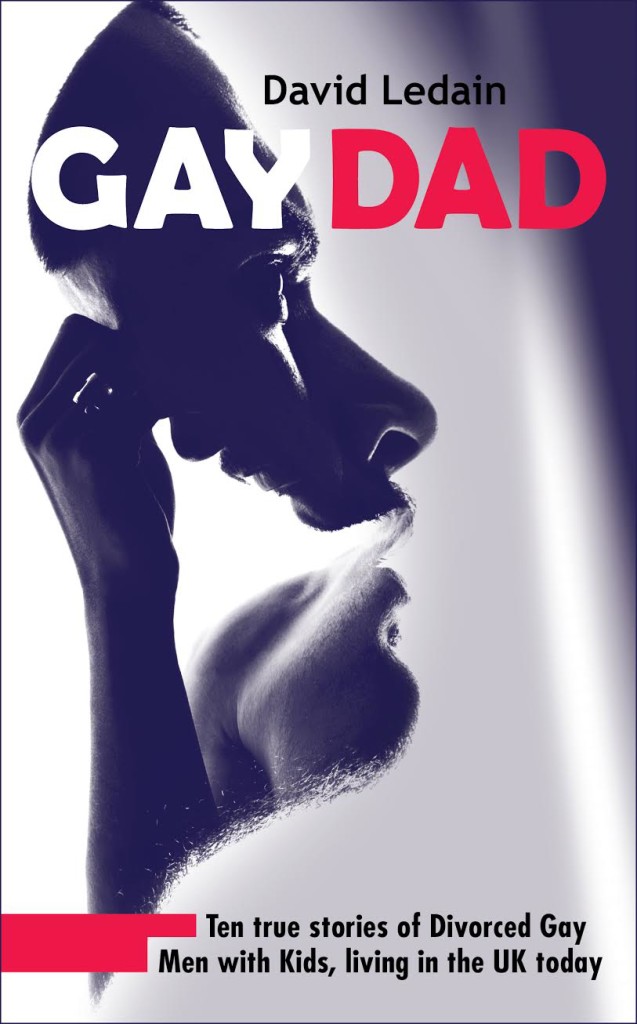By David Ledain, the latest addition to the Frost magazine team, writing on LGBT issues
Sport is a phenomenon which can both bond and divide in equal measure. Tribal instincts and loyalties are challenged and revered, and in football especially, young men can be empowered and at the same time hidden from view.
Homophobia and anti-gay violence seems to crystalize young males in football tribes and gangs. It proves their heterosexuality and obliterates any secret homosexual desires of their own they may have. Targeting gay men is not seen by the perpetrators as hatred towards the individuals, but rather as an extreme expression of society’s expectations of them – that they are conducting themselves within what they have learned as acceptable male behaviour. They are in part driven by fear. The potential of any young man, regardless of his sexual orientation, to be labelled as ‘gay’ and weak, and ostracised from his family and the surrogate families of his football tribe, schoolfriends, work colleagues or neighbours, for being or unknowingly presenting anything other than the heteronormative, is so damning, even dangerous, that men are pressurised into characterising themselves to a very narrow set of male gender stereotypes. Owen Jones, the columnist, author and social activist, concurs, saying that the majority of homophobic abuse is ironically directed at straight males, and that almost all men will have been subjected to some sort of malicious homo-name-calling in their lives and been told in no uncertain terms what sort of a man they should be.
‘You grow up hearing people use what you are as the ultimate derogatory insult,’ Jones says. ‘Society tells you you should be heterosexual. It’s even subtler than that. There’s that awful patronising thing when people say, “Oh, I never would have guessed that you’re gay”, and you’re left feeling almost flattered that your leprosy isn’t publicly obvious.’
The potency of the idealised masculine heteronormative which captivates and imprisons young men especially, through its facade of power and place in the world, even when those same young men whose circumstances gives them no real power at all, is the derisible falsehood that is so destructive. Males who aspire to this gender stereotype, yet have no means of ever realising it due to factors out of their control, and not always economic or social, may feel their only way to make a mark in the world, to stand out in their community, is to carry out attacks on vulnerable groups, particularly, homosexuals – easy targets which they see as the antithesis of who they are and who they want to be.
Altrincham FC recently made the headlines by tackling the issue of homophobia in football by going out on pitch in a rainbow coloured kit, and in 2017 Stonewall backed the Rainbow Laces campaign to get everyone who plays sport to support LGBT equality. Cricketer, Joe Root, has also been widely applauded for his response to alleged homophobic abuse, telling the West Indies bowler, Shannon Gabriel, ‘There is nothing wrong with being gay.’
Things are slowly changing both on the pitch and in the dressing room but getting to a place where LGBT equality and anti-gay abuse from the terraces is not a topic of discussion any more is difficult to imagine because of the deep-rooted traits of the hetero-biased tribes. But if sport and particularly football continues to move towards diversity and inclusivity, one day we will get there.
You can follow David on Facebook & Twitter @Davidledain
And visit his website www.gaydad.co.uk for more information and his blog.




